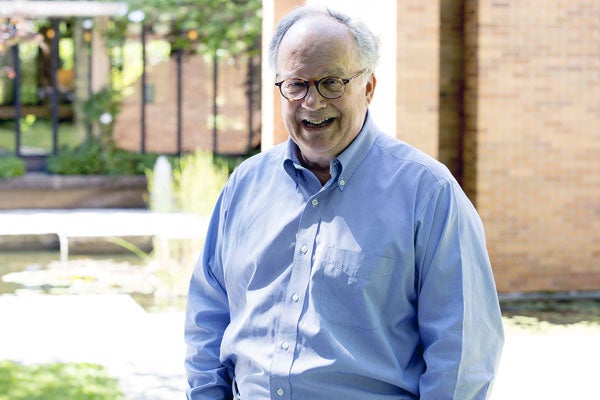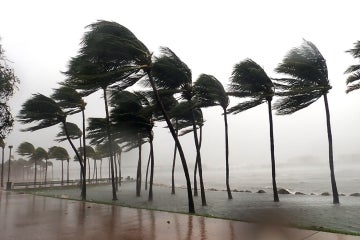
John Fraser: looking back on almost two decades as master of Massey College
Published: June 25, 2014
For 19 years, as Master of Massey College, John Fraser always remembered one of his favourite quotes, from Professor Abraham Rotstein: “you have to run very fast to stay in the same place.”
It sounds like a negative, but in fact, it is quite the opposite. Fraser retires as Master on June 30, with former Senator Hugh Segal replacing him on July 2.
“I’m very proud that I am handing Massey College over and that it is still recognizably Massey College,” he said in an interview in his “retirement office” at Massey – the old office of Robertson Davies, founder of Massey, complete with a small bedroom. He is leaving Massey with a lot of things that gave it its character under Robertson Davies and Vincent Massey.
"I was running fast,” he said, “to make sure that Massey College was recognizable at the end of my time. I am very proud that the endowment on all fronts, is what it is, because we have to raise our own money, we are not part of the U of T.”
When Fraser became master in 1995 Massey had $5.2 million in endowment, 97 junior fellows, 83 senior fellows and an alumni association of 82 active members in the Toronto area. Today Massey – celebrating its 50th anniversary this year – has an endowment of $22 million, with 150 junior fellows, 280 senior fellows, 308 members of the Quadrangle Society and an alumni association with about 1,300 members in 13 countries.
One of things Fraser is most proud of is his creation of the Quadrangle Society in 1996, “which has been an amazingly successful vehicle to fulfil the college’s goal to be a link between the outside world and the academic community, working both ways.”
When pressed to name some of the U of T grad students who became junior fellows and who went on to great things in their careers, Fraser is reluctant: there are so many. But he named Ted Sargent (Canada Research Chair in Nanotechnology); Colleen Flood (Canada Research Chair in Health Law and Policy); Cecil Hahn (a pediatric oncologist at the Hospital for Sick Children) and Claire Battershill (her first book of short stories, Circus, was published this year).
Another major accomplishment was saving the journalism program, which “was in dire threat” because the Asper family no longer wanted to fund the Southam program. In the short term he found “financing from various wonderful donors” and worked towards getting it endowed. “It is 80 per cent endowed now, it is saved.”
He also started the Scholars at Risk program, “of which I am also very proud,” he said. In the most revered room at Massey, the private dining room, hangs a facsimile of two pages of the last letter Ken Saro-Wiwa wrote to his son Ken before being executed by the Nigerian government for his stand against the destruction of the Ogoni ancestral homeland. Ken Wiwa was a visiting fellow and senior resident in 1999.
In an interview, Segal said Fraser’s accomplishments suggest that he was not a practitioner of “path dependency,” where in society people follow the same direction, or furrow, because it is so much easier than heading in a new direction.
“John Fraser had the courage to move out of the old rut while respecting the liturgical history of Massey,” said Segal.
The accomplishments and “the luck I have had to run this place for nearly two decades….I think I am the luckiest person alive,” Fraser said. “We are a very small but efficiently run institution that I think is a model for community building, and the main focus is brilliant young scholars.”
Fraser was dance critic for the Globe and Mail in 1974 when he played a key role in orchestrating the defection of legendary dancer Mikhail Baryshnikov from the Soviet Union and, in June, Baryshnikov attended a ceremony at Massey to celebrate Fraser’s years at the college.
Among the gifts Fraser received upon retiring were air miles that he and his wife Elizabeth MacCallum, also a writer and broadcaster, will use to travel to Tanzania to teach for several weeks. Massey has a partnership with Journalists for Free Expression and it will sponsor them to do some teaching.
Fraser, 70, is still a journalist and author and plans to write more books after he leaves Massey – but in fact he won’t really be leaving. After taking a year off he will return to advise Segal and help do some fundraising, while using Davies’ old office, always keeping Rotstein in mind.



